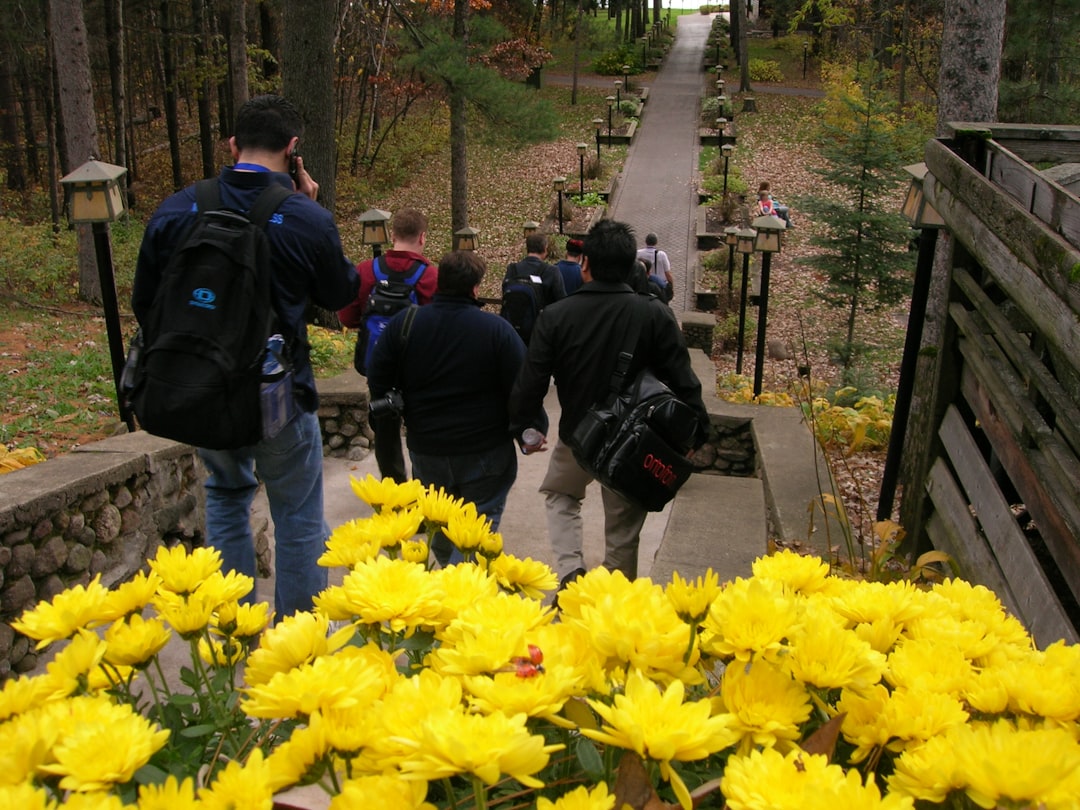Attending conferences can be a valuable opportunity for professionals to network, learn new skills, and stay current in their field. Whether you are a seasoned conference-goer or attending for the first time, making the most out of your conference experience requires careful planning and strategic networking. In this blog post, we will discuss the importance of networking at conferences, how to prepare before the event, tips for engaging with others during the conference, the importance of following up after the event, using social media to extend connections, and conclude with key takeaways to help you maximize your conference experience.
Importance of Networking at Conferences
Networking at conferences is a crucial aspect of building professional relationships, expanding your knowledge base, and advancing your career. Conferences provide a unique opportunity to connect with like-minded individuals, industry experts, and potential collaborators in a concentrated setting. By actively engaging in networking activities at conferences, you can gain valuable insights, exchange ideas, and establish meaningful connections that can lead to future collaborations, job opportunities, or business partnerships.
Networking at conferences also allows you to stay current with the latest trends and developments in your field. By attending sessions, workshops, and panel discussions, you can learn from thought leaders, experts, and peers who are at the forefront of innovation and research. Additionally, networking at conferences can help you expand your professional network, build your personal brand, and enhance your visibility within your industry.
Ultimately, networking at conferences can open doors to new opportunities, foster professional growth, and help you stay connected with the broader community in your field. By actively participating in networking activities at conferences, you can maximize your conference experience and make the most of the valuable connections and insights that these events have to offer.
By actively engaging in networking activities at conferences, you can gain valuable insights, exchange ideas, and establish meaningful connections that can lead to future collaborations, job opportunities, or business partnerships.
3. Preparing before the conference
Before attending a conference, it is crucial to adequately prepare to make the most out of the networking opportunities that will arise. Here are some essential steps to take before the event:
1. Research the Speakers and Attendees: Take some time to familiarize yourself with the speakers and attendees who will be present at the conference. This will allow you to identify key individuals you want to connect with and engage in meaningful conversations with them.
2. Set Clear Goals: Determine what you want to achieve by attending the conference. Whether it is to make new connections, learn about industry trends, or promote your own work, having clear goals will help you stay focused and make the most of your time at the event.
3. Prepare Your Elevator Pitch: Be ready to introduce yourself and your work in a concise and compelling manner. Your elevator pitch should highlight your expertise and what you can offer to potential connections.
4. Update Your Business Cards and LinkedIn Profile: Make sure your business cards are up to date and reflect your current position and contact information. Additionally, ensure that your LinkedIn profile is complete and professional, as many attendees may look you up online after meeting you at the conference.
5. Plan Your Schedule: Review the conference agenda and prioritize the sessions, workshops, and networking events you want to attend. By planning your schedule in advance, you can make the most of your time and ensure that you don’t miss out on any valuable opportunities.
6. Bring Essential Supplies: Don’t forget to pack essentials such as business cards, a notebook and pen for taking notes, chargers for your electronic devices, and any materials you may need for presentations or meetings.
By preparing before the conference, you can approach the event with confidence and maximize your networking potential. Remember, the connections you make at conferences can lead to valuable opportunities and collaborations in the future.
Set Clear Goals: Determine what you want to achieve by attending the conference.
Engaging with Others During the Event
Networking at conferences is not just about exchanging business cards and small talk. It’s about building meaningful connections with like-minded professionals in your industry. Engaging with others during the event is crucial for maximizing the opportunities that conferences offer.
Here are some tips for effectively engaging with others during the event:
- Be present: When attending sessions or networking events, be fully present and engaged. Put away your phone and focus on the conversation at hand. Active listening is key to building rapport with others.
- Initiate conversations: Don’t be afraid to approach new people and start a conversation. Remember, everyone is at the conference to network, so most people will be open to meeting new contacts.
- Ask questions: Show genuine interest in the other person by asking thoughtful questions about their work, challenges, and goals. This will not only help you learn more about them but also make a lasting impression.
- Share your expertise: Don’t be shy about sharing your own experiences and expertise. Offer insights and advice that can help others in your industry. This will position you as a valuable resource and build credibility.
- Follow up: Exchange contact information with the people you meet and follow up with them after the conference. Personalize your follow-up messages and continue the conversation to strengthen your connections.
Remember, networking is a two-way street. The more you engage with others and add value to the conversations, the more you will get out of the conference experience. So, make the most of your time at the event by actively participating and building relationships with your peers.
So, make the most of your time at the event by actively participating and building relationships with your peers.
Following up after the conference
Once the conference has come to an end, your work is not over. Following up with the connections you made during the event is crucial to solidifying those relationships and potentially turning them into valuable opportunities.
One of the first things you should do is send a personalized follow-up email to each person you connected with. Reference something specific from your conversation to jog their memory and express your interest in continuing the dialogue. Be sure to include any relevant information or resources that were discussed during your conversation.
Additionally, consider connecting with your new contacts on LinkedIn. This will allow you to stay in touch and continue to build your professional network. When sending a connection request, customize the message to remind them of your conversation at the conference.
Another effective way to follow up after a conference is to send a handwritten thank you note. In today’s digital age, receiving a physical note can make a lasting impression and show your sincerity in wanting to stay connected.
Lastly, don’t forget to keep track of your interactions and follow-ups in a spreadsheet or CRM system. This will help you stay organized and ensure that you are following up in a timely manner.
By following up diligently after a conference, you can nurture the connections you made and potentially turn them into meaningful relationships that can benefit your career in the long run.
Another effective way to follow up after a conference is to send a handwritten thank you note.
Using Social Media to Extend Connections
One of the most effective ways to extend your connections beyond the conference is by utilizing social media platforms. Social media allows you to continue engaging with the people you met at the event, as well as reach out to new contacts who may have been at the conference.
One strategy is to connect with people you met on LinkedIn. Sending a personalized connection request with a reminder of where you met can help solidify the connection. Once connected, you can continue to interact by liking, commenting, and sharing their posts. This will keep you on their radar and maintain the relationship.
Another platform to consider is Twitter. You can follow the people you met at the conference and engage with their tweets by liking, retweeting, and replying. This will help you stay in touch and show that you are interested in what they have to say.
Additionally, you can join relevant LinkedIn or Facebook groups related to the industry or topic of the conference. This is a great way to connect with like-minded individuals, share insights and resources, and stay up-to-date on industry news and events.
Lastly, don’t forget to share your own experiences from the conference on your social media channels. By posting about the event, sharing photos, and highlighting key takeaways, you can show your network that you are active in your industry and value professional development.
Overall, using social media to extend connections from a conference is a valuable way to continue networking and building relationships long after the event has ended.
Social media allows you to continue engaging with the people you met at the event, as well as reach out to new contacts who may have been at the conference.
Conclusion
In conclusion, networking at conferences is a valuable opportunity to expand your professional connections, learn from others in your field, and potentially advance your career. By preparing before the conference, engaging with others during the event, and following up afterwards, you can make the most of this networking opportunity.
Using social media to extend connections is also a powerful tool to stay in touch with the people you meet at conferences and continue to build relationships beyond the event. By leveraging platforms such as LinkedIn, Twitter, and Facebook, you can easily connect with new contacts, share insights, and stay informed about industry news and events.
Remember, networking is not just about collecting business cards or making small talk. It’s about building meaningful relationships, fostering collaborations, and creating new opportunities for growth and development. So, make the most of your conference experiences and invest in your professional network – you never know where it may lead you. Good luck!





